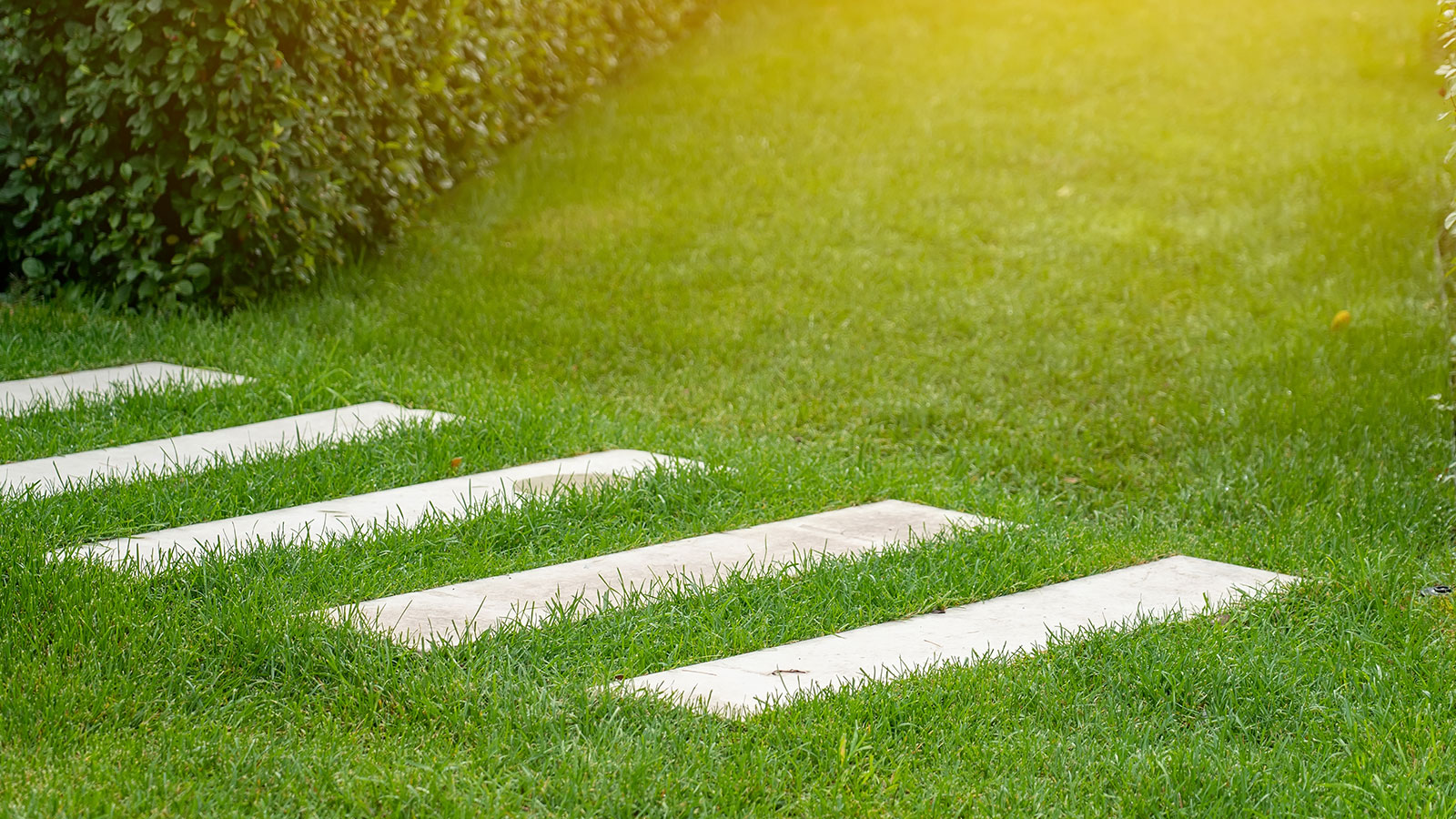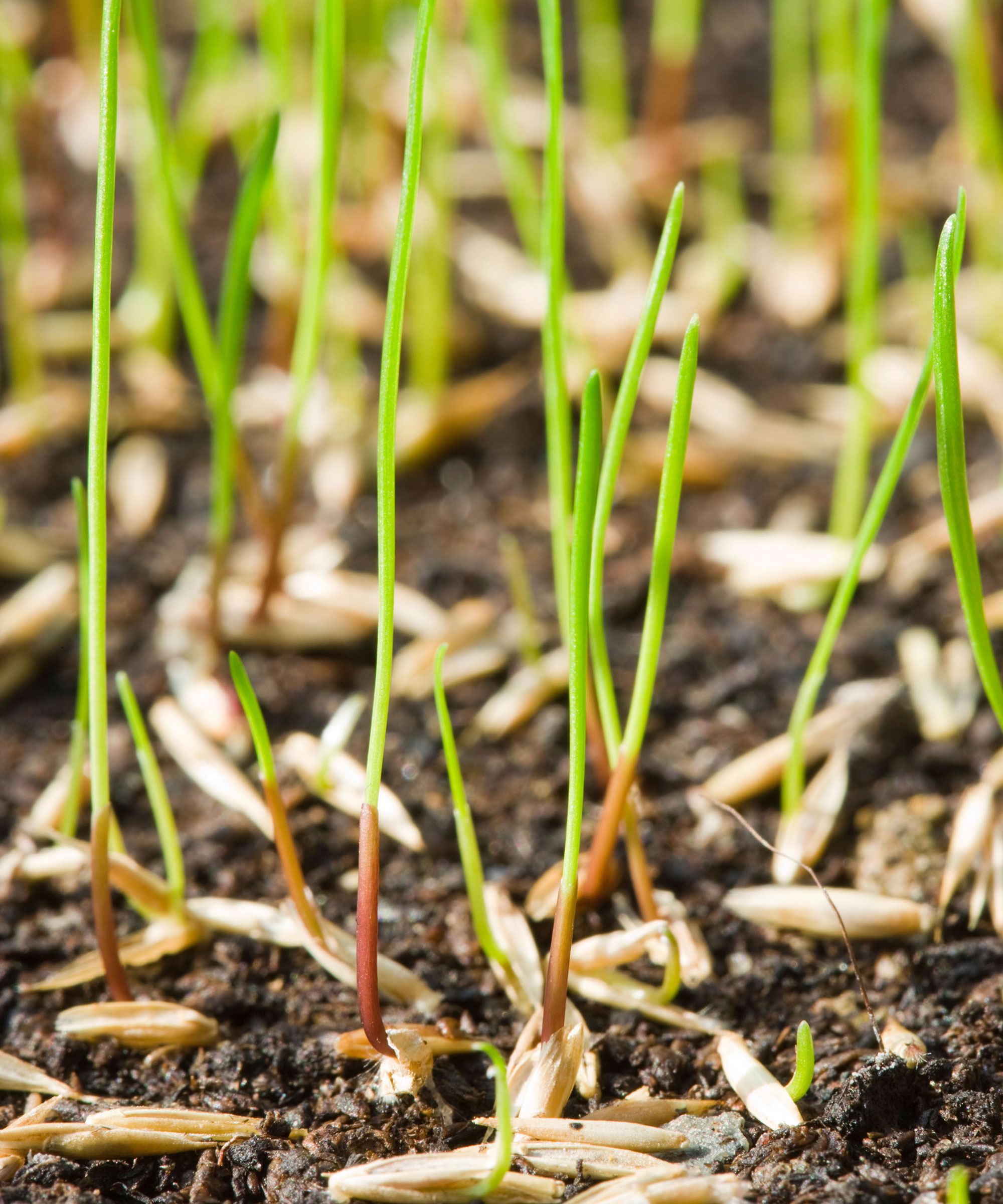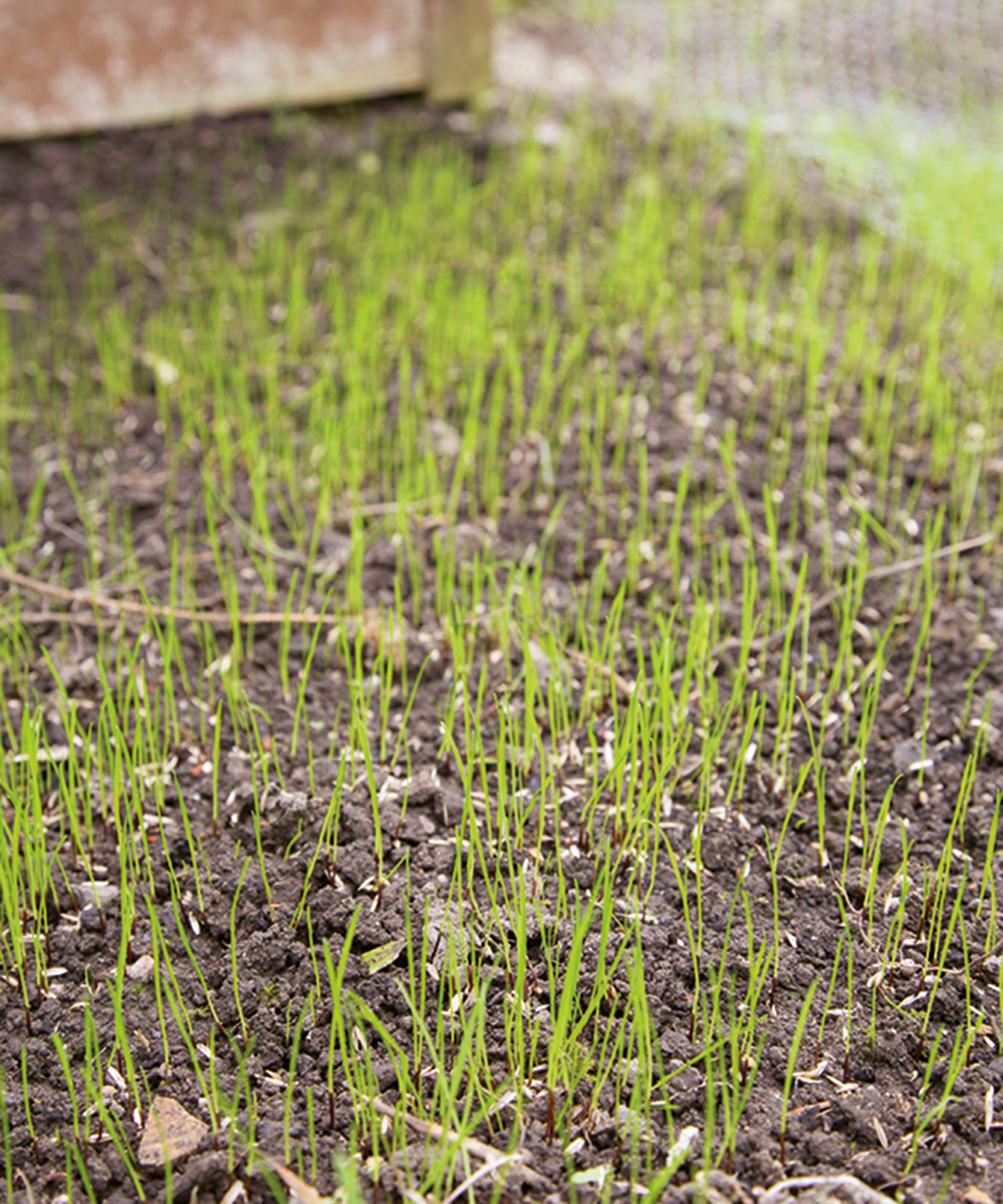When does grass seed start to grow? Expert tips on timings and growth rates
Discover how long it takes for grass seed to start growing so you can plan for a gorgeous, lush lawn


The exact time of year when grass seed starts to grow will vary depending on the local climate, weather, the type of grass seed you have chosen and the time of year you choose to sow it.
Like all seeds, grass seed needs favorable conditions in order to germinate and put out emerging shoots. You also need to be aware of the different growth rates of grasses – some are fast-growing grass seed and will germinate and start growing just a few days after seeding, while others will take a couple of weeks or longer.
So whether you are looking to refresh a tired area of grass or cultivate a home lawn from scratch, planning ahead can make all the difference to the success of your garden project. We put the question of when grass seed starts to grow to a number of leading industry experts for their insights so you can waste no time in perfecting your home lawn.

How quickly grass seed germinates will depend on the conditions and the type of grass you are growing
Expert tips on when grass seed starts to grow
Like all plants, turf grass can be encouraged to germinate when the basic elements are right. 'Generally, seeds need warm, moist conditions with adequate light and nutrients for best germination and growth,' says Zeeshan Haider, founder of greenryenthusiast.com. Get this combination of factors right, and you can expect to see your new grass sprouting in as little as a week to 10 days for some grass varieties.
Knowing when to plant grass seed to give it the best chance of growing well is key. Early fall and mid-to-late spring are the ideal times of year to sow grass seed in most regions. This is because in fall it will have time to germinate and put out strong roots before any cold weather arrives, while in spring the soil has warmed up after winter and the grass seed has chance to grow before the really hot, dry weather arrives. Be warned, however, that sowing too early in spring if there is the risk of late frosts in your zone can halt germination. Certain types of grass seed can struggle after frost, meaning it will take longer for your lawn to grow.
The type of grass seed you use for your new lawn will also have an impact on when it starts to grow. Grass seed is essentially divided into two categories – cool and warm season grasses. By finding out which thrives in your area, you will be able to grow a verdant lawn in no time.
‘Cool-season grasses thrive in cooler climates with moderate rainfall while warm-season species prefer hotter temperatures with more rain or irrigation,’ says Chad Chapman, owner of Brookfield Lawn Care.
‘Warm season grasses tend to be fast growers; typically sprouting within 7-14 days after planting, depending on temperature and rainfall,' adds Chad. 'While cool season grass seeds such as fescue and rye can tolerate colder temperatures better than their warm season counterparts, so they can take longer to sprout, which can range from 14-21 days post installation.’
Both cool season and warm season grass seed is readily available from both Amazon and Walmart.

If you get the conditions right, some grass seed can start to sprout in less than 10 days
The ideal conditions for grass seed to grow
As well as getting the timing right, there are four primary considerations when planting grass seed if you want to transform seed into a lush healthy lawn. 'These are soil, temperature, sun, and foot traffic,' says Denis McCausland, landscaper and owner of Green Mountain Landscapers.
Consistency in ground temperature is a key trigger for successful germination, whether you're overseeding a lawn or starting a new one from scratch.
‘Cool-season turf grass seeds germinate best when soil temperatures are consistently around 70˚F, and they have adequate soil moisture,' says Josh Moser, general manager of Green Giant Home & Commercial. 'Seeding is typically performed in September in the northern states but may vary depending on your specific climate and region. This helps to avoid early freeze damage, which can occur when seeding is done late in the growing season.’
What are the average germination times for grasses?
Grass seed germination periods largely depend on key growing conditions which include average soil temperature, moisture, natural light levels and soil type. Average growth times also vary depending on seed variety, but generally speaking they are as below:
Germination rates for cool season grasses
- Kentucky Bluegrass: typically 14-30 days
- Bentgrass: 10-14 days
- Ryegrass: seeds usually grow in 7-14 days
- Fescue: around 14-28 days
Germination rates for warm season grasses
- Bermuda grass: around 10-14 days
- Zoysia grass: an average of 21 days
- St. Augustine: around 7-14 days
- Buffalo: from 7 days, if conditions are optimum
How can I make grass seed germinate faster?
There are a few key points to remember if you want your grass seed to start growing as quickly as possible after you've sown it.
- Choose the best grass seed for the location.
- Prepare the area by raking the soil to loosen it, removing stones and weeds.
- Apply a pre-seeding fertilizer and water the soil.
- Apply seeds evenly over the area, press them down and keep the soil moist.
- Avoid walking on newly planted grass seed as this can impede its germination and growth rate.
- Apply a fertilizer after sowing if you haven't beforehand. Feed the emerging grass by fertilizing the lawn about every month to help make your lawn green and thick.
Sign up to the Homes & Gardens newsletter
Design expertise in your inbox – from inspiring decorating ideas and beautiful celebrity homes to practical gardening advice and shopping round-ups.

Journalist Jill Morgan has spent over 20 years writing and editing gardening, interior and property features. Titles she has worked on include The English Home, House Beautiful, Ideal Home, Houzz and Modern Gardens and she writes regularly for H&G as a Contributing Editor. Whilst she is a dab hand at renovation projects and DIY, she is happiest when out digging in the garden or planning a new border.
-
 Zooey Deschanel and Jonathan Scott's breakfast nook is an innovative, effective use of kitchen space – it turns a 'dead area' into a cafe-style corner
Zooey Deschanel and Jonathan Scott's breakfast nook is an innovative, effective use of kitchen space – it turns a 'dead area' into a cafe-style cornerJonathan and Zooey have situated an eccentric yet elegant dining area in what may have been an otherwise underused corner
By Hannah Ziegler Published
-
 6 things you should never throw in the trash – and what to do for safe disposal instead
6 things you should never throw in the trash – and what to do for safe disposal insteadFrom batteries to space heaters, experts reveal what not to throw
By Andy van Terheyden Published